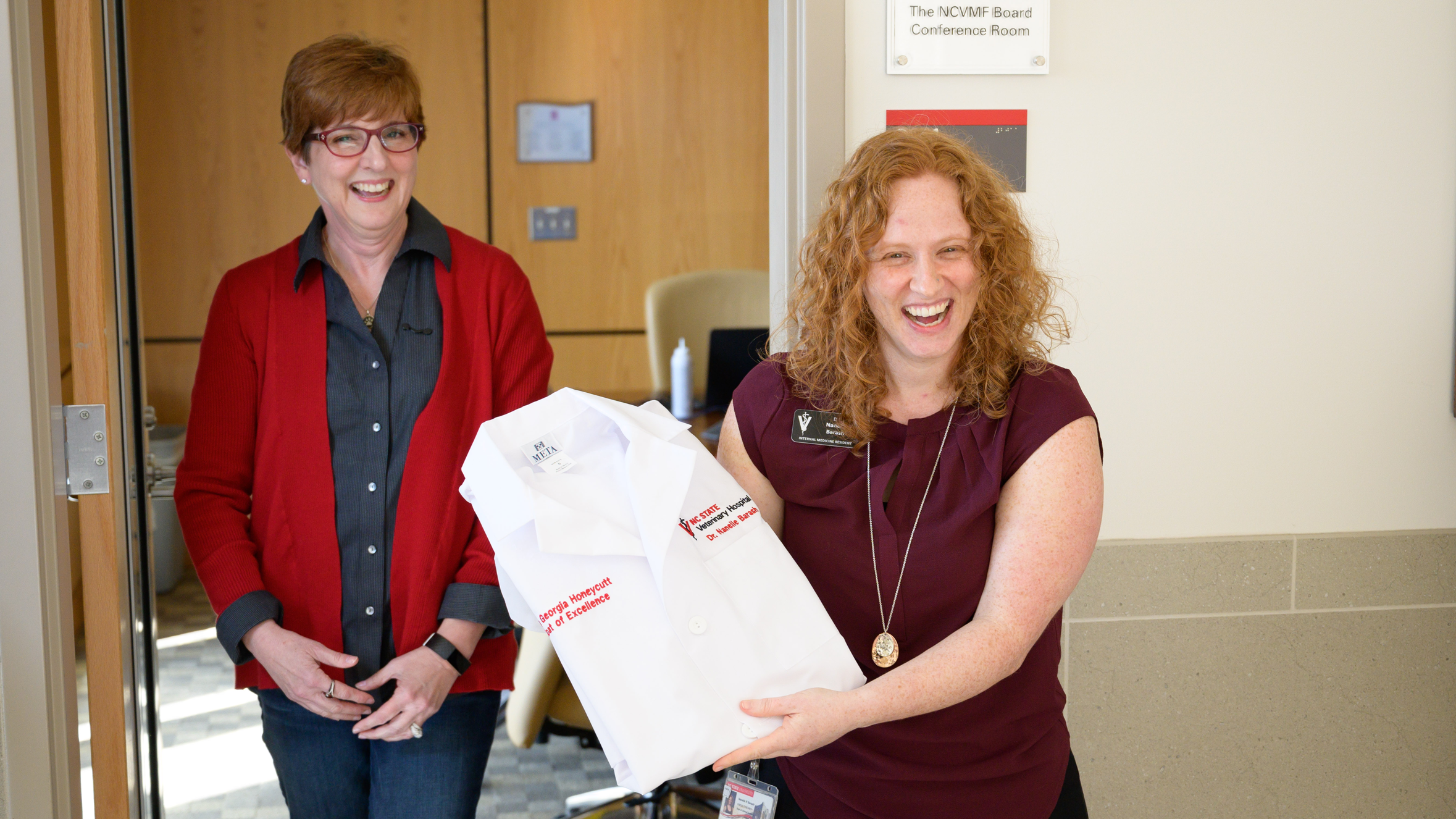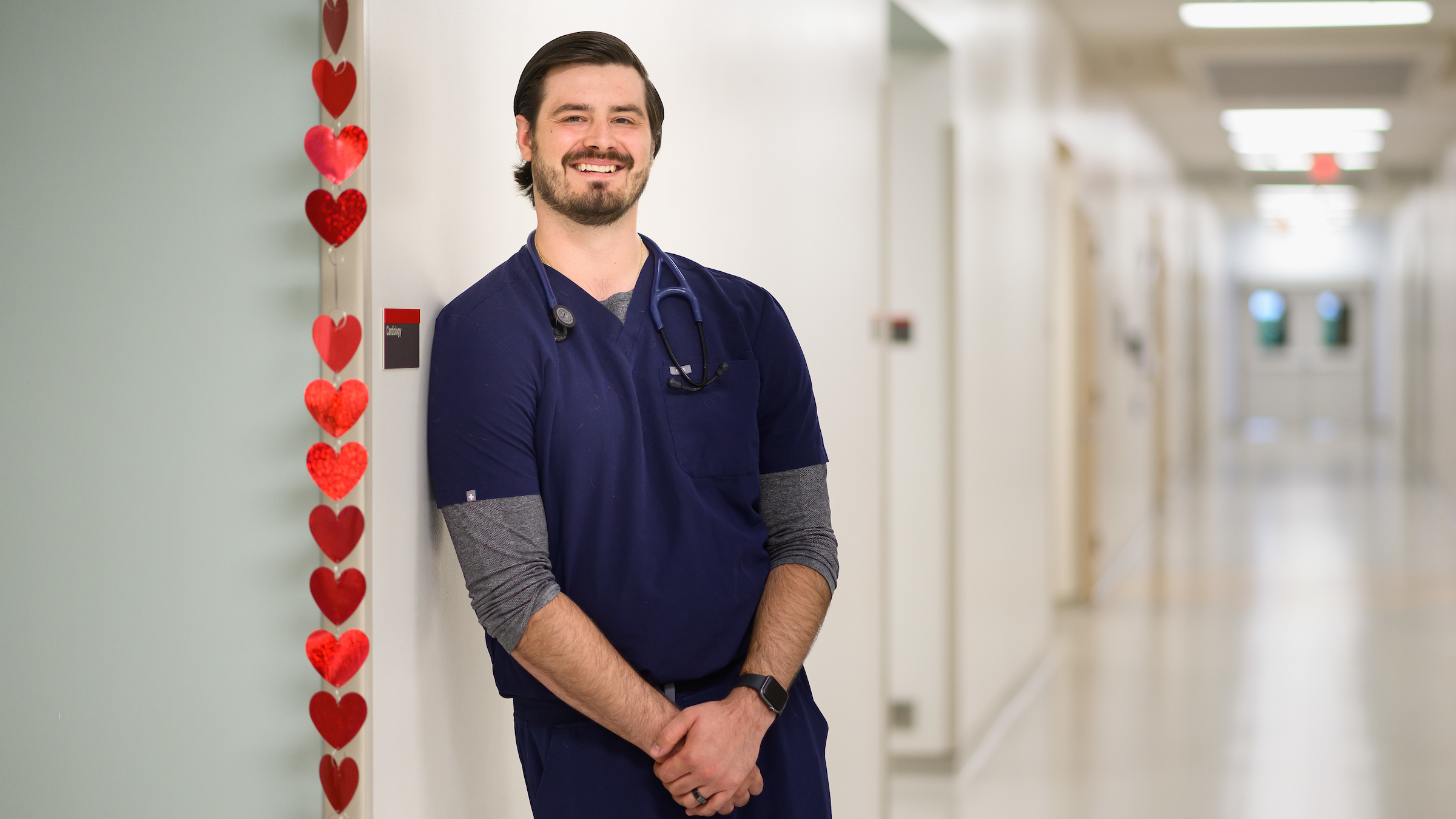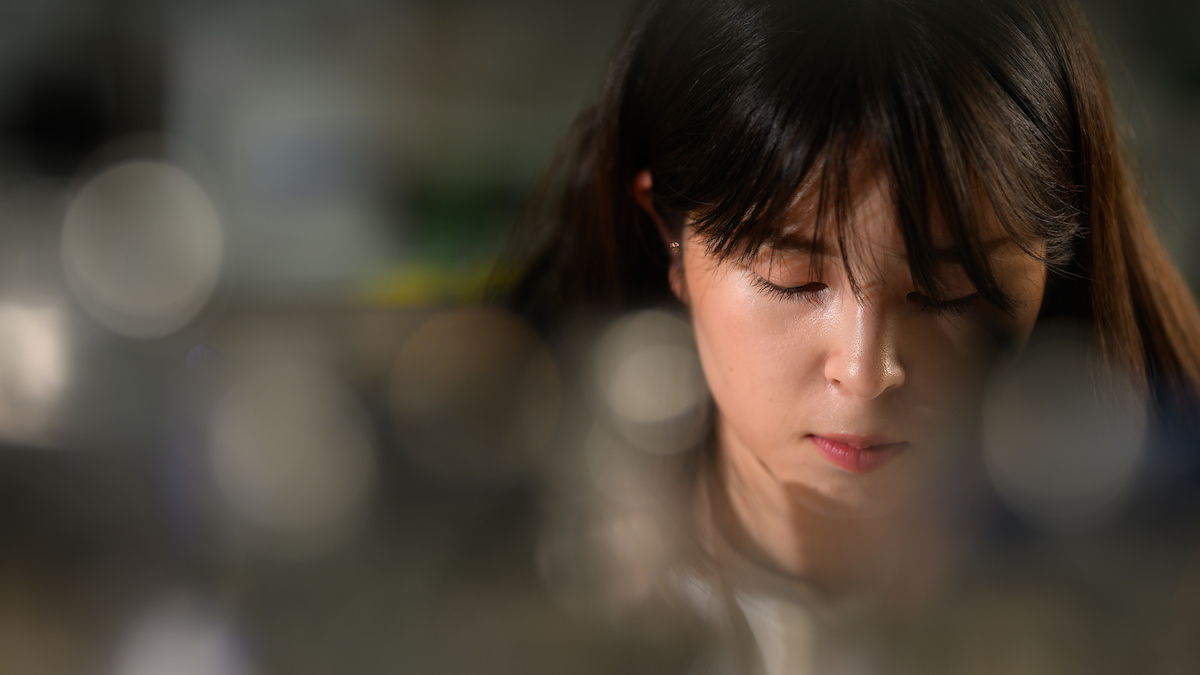Resident Who Never Gave Up Receives Coat of Excellence

Georgia was a true medical detective story, and thankfully Nanelle Barash was on case.
Emily and John Honeycutt didn’t quite know what was going on with their 10-year-old hound mix. Georgia has immune mediated polyarthritis, or IMPA, an inflammatory disease that damages connective tissues. She had recently undergone surgery to have a stainless steel plate implanted to stabilize a joint after a cranial cruciate ligament rupture.
Seven days after the surgery, the Honeycutts realized Georgia was sick. She was taken to an emergency clinic and then back to the veterinarian who performed the surgery. The condition worsened, so the Honeycutts brought her to the NC State Veterinary Hospital.
It took five days to figure out what was wrong. It was on day five of Georgia’s hospital stay that Barash took over the case.
“She realized that rotating doctors wouldn’t work for Georgia,” says Emily Honeycutt. “Her case was complicated, and she needed someone familiar with her case and with what was ‘normal’ for her.”

Barash got to work. She consulted with other veterinarians that had been involved with Georgia’s care, always keeping the Honeycutts informed about Georgia’s condition and who the appropriate contacts were at any time. After a few different types of medication were ineffective, Barash recommended trying Cytosar, more commonly used in cancer cases, as an immunosuppressant.
The Cytosar proved to be so effective that Barash’s colleagues have initiated a clinical trial to the test Cytosar in conditions like Georgia’s.
“She also consulted orthopedics and suspected that there might be an infection in the joint or from the implant,” says Emily Honeycutt. “We started antibiotics and Georgia’s limp went away. We took her off antibiotics and the limp came back. That led us to surgery to remove that plate.”
It took about 20 months to determine the right medications for Georgia and that the problem was associated with her implant. The implant had become infected with a thin film of bacteria that stubbornly adhered to the surface. Doctors couldn’t remove the plate until Georgia’s knee damage was fully healed, making the right antibiotics integral to maintaining Georgia’s health in the meantime. It was a particularly challenging case. At one time, amputation was considered.
Over the 20 months, they Honeycutts and Georgia came to NC State about four times a month. Barash was with them all along the way.
“She never gave up on our case,” says Emily Honeycutt. “She also gave us the confidence to move forward with different treatments even when we were nervous to make changes.
Recently, the Honeycutts were back at NC State. This time, it was to honor Barash with a Coat of Excellence, a special way clients can recognize an impactful faculty clinician, intern, resident or staff member who has touched their lives and the lives of their pets. The donation helps support veterinary hospital services, includes a white lab embroidered with the name of the honoree and the name of the animal they so deeply cared for.

Georgia’s recovery has been remarkable. Just a few months after surgery, Barash was excited to see the Honeycutts and Georgia again during a visit to the hospital. Barash took Georgia around so everyone who had a part in her treatment could see how well she was doing, Emily Honeycutt says.
“This has been one of the most rewarding experiences of our lives,” says John Honeycutt. “All these people who have come through for Georgia, we are grateful to every one of them.”
The feeling is mutual.
“They are just the nicest people, so gracious and understanding,” Barash says of the Honeycutts. “They are ideal clients — and human beings.”
~Steve Volstad/ NC State Veterinary Medicine
- Categories:


